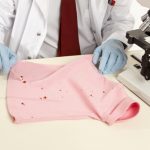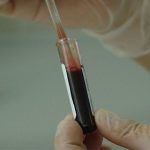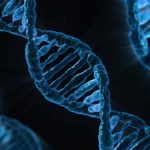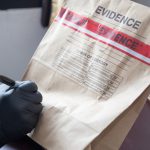Innocent Man Convicted After Botched DNA Test

Controversial DNA testing laboratory PathWest is under fire once again in the wake of fresh revelations that an innocent man was wrongly convicted and suffered the consequences of a criminal record for more than a decade after staff at the state-run facility bungled a DNA test.
The incident
The man was charged in 2004 over a home invasion when police were notified that his DNA matched a forensic sample taken from the crime scene.
The man protested his innocence but later decided to plead guilty after receiving advice from his defence lawyers that he was unlikely to be believed by a jury, and would achieve a better outcome if he accepted guilt.
Despite their client’s protestations of innocence, the lawyers failed to engage independent forensic analysts to compare the samples. The reasons for the omission are unclear.
The defendant, in his twenties, ultimately receive a suspended prison sentence which affected many aspects of his life, including his ability to obtain employment and his personal relationships. The psychological and financial impact of the wrongful conviction continues to the present day.
WA attorney-general John Quigley acknowledged on Thursday that PathWest had incorrectly linked an innocent man with DNA of another man with the same name, because it failed to check their birth dates.
Error fortuitously revealed
PathWest discovered the blunder last year after the man who matched the crime scene DNA was arrested over a separate matter, and gave a DNA sample.
It is unlikely the error would ever have been revealed if the man had not been arrested and tested.
Police wait more than a year to notify the DPP
PathWest notified Western Australian police of the mix-up in April last year.
Rather than immediately taking action, police sat on the information for more than a year before passing it onto the DPP.
Making amends
Mr Quigley has issued a formal apology to the man, helped him to secure the services of WA Bar Association president Matt Howard and foreshadowed an application to the WA Court of Criminal Appeal to have the conviction quashed.
The man may also be entitled to seek compensation for the wrongful conviction.
DNA tests in question
The incident follows revelations last month that PathWest’s senior analyst, Laurance Webb, was dismissed for breaching protocols from 2008 to 2014, including fabricating records that tests had occurred when they had not, and failing to conduct quality testing.
The Health Department, which is responsible for PathWest, has asked the Public Sector Commissioner to conduct a broad investigation into the agency. Health Minister Roger Cook said he was “deeply concerned” about the latest bungle.
“This is a very serious matter”, Mr Cook acknowledged. “I have requested the Public Sector Commissioner conduct an immediate review into PathWest’s operations to determine whether or not this was an isolated incident”.
“I want to reassure the legal community that everything is being done to prevent incidents such as this from occurring in the future.”
Police and the government were on notice
As early as 2006, the auditor general expressed concerns that pressures on PathWest to quickly produce results could undermine reliability.
In 2013, a follow-up audit report found that the lab’s capacity to meet any future growth in the demand for forensic testing was limited.
WA police commissioner Karl O’Callaghan remarked that a respected forensic expert visited PathWest’s Forensic Biology Department some time ago, expressing surprise about the relatively primitive infrastructure and concerns about whether staff could undertake examinations in accordance with acceptable standards.
Despite these concerns, the government failed to take steps to ensure the compliance with protocols and accuracy of samples, and police continued to accept DNA matches from the lab as gospel.
Misleading presentation of DNA evidence
As previously discussed, the way DNA evidence is presented inside the courtroom and its ability to influence jurors has attracted a great deal of controversy in recent years.
Submissions such as “there’s a 1 in a billion chance the profile is someone else’s” are inaccurate, misleading and can unfairly sway a jury to convict.
In fact, such a ‘match’ (assuming it is accurate) merely means that if a random person were selected from the population, there would be an extremely slim chance of that person matching the profile in question. It does not mean there is a 1 in a billion chance the profile is someone else’s.
Putting aside the misleading presentation of DNA evidence, the integrity of declared matches has also come under significant criticism in recent years.
DNA is not foolproof
Despite how it is represented in courtroom dramas, DNA evidence is hardly foolproof.
DNA profiles have been incorrectly matched in several other cases over the years. Samples have been contaminated in the laboratory, and many have been wrongly labelled; which can have disastrous consequences.
After finding significant flaws in the gathering, testing, storage and auditing of forensic samples in his state, Victorian ombudsman George Brouwer recommended in 2009 that police forensic scientists be banned from giving evidence ”until further notice”; although his recommendations largely fell on deaf ears.
The lack of independence in forensic testing was also concerning to Former High Court Justice Michael Kirby, who remarked:
“Effective facilities [should be] provided to suspects to permit them a secure independent scientific scrutiny of DNA samples alleged to relate to them. It is important that the relevant experts should not be entirely within the employ of the state. Just because a result is produced by an expert or a machine is no reason to accept it without further questioning.”
But with governments and police forces that are more interested in appearing ‘tough on crime’ and securing convictions than in guarding against injustice – and with juries regularly misled by the media and prosecutors that forensic and other expert evidence is infallible – there is an argument that unjust outcomes are the norm in our legal system rather than the exception.







